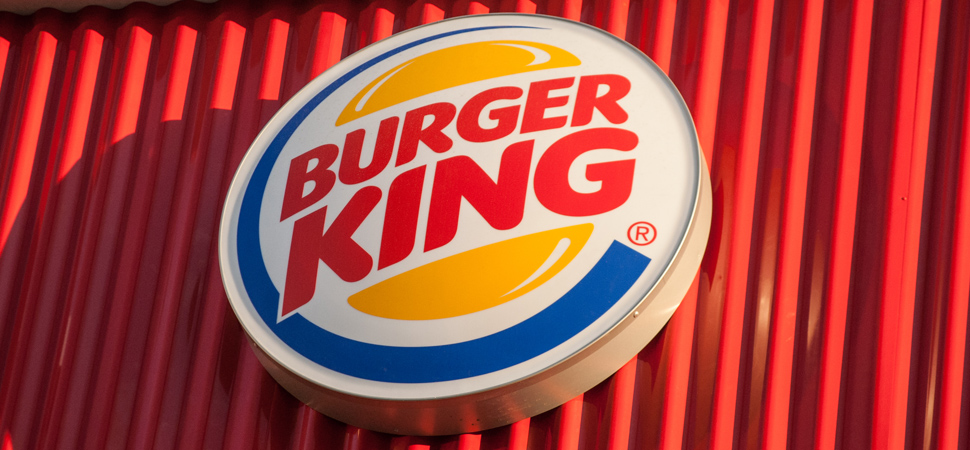Franchising, retail, business

27/08/2014
Here's to American companies that are making good financial moves to increase their long term value, even if they're not immediately popular or subjects them to public criticism.
There are 3 reasons why you should eat at Burger King:
1. The Whopper is delicious.
2. Their onion rings are delicious.
3. It is a well-managed company that represents the best of American capitalism.
Of course, Nos. 1 and 2 go without saying. But let's not dwell on the obvious. How about the not so obvious? That's No. 3 on this list.
Burger King has found itself in the middle of a political storm this week, after announcing that it was acquiring Tim Horton's, a Canadian donut and breakfast chain. The company has laid out a myriad of factors behind this decision: the need for growth, the desire to penetrate new markets, expand their operations and offer new product lines. And these are all good, valid reasons. But no one's paying attention to that. Everyone's focused on taxes. Burger King is accused of being one of the latest companies to do a "tax inversion"--move their headquarters out of the U.S. in order to benefit from a lower tax rate elsewhere.
That is exactly what will happen when this deal closes. That's because the corporate rate in the U.S. is higher (around 40%) than our northern neighbor (which is at 26%). These types of deals, which result in paying less U.S. taxes, are not popular with some, particularly those in Washington.
"Burger King is a household name, and this will focus the public's attention on this issue in a way that earlier inversions did not," said Rep. Chris Van Hollen (D., Md.), the top Democrat on the House Budget Committee. He predicted that the Democratic-run Senate would try to pass anti-inversion legislation soon and that Democrats would continue to push for a similar vote in the GOP-run House." After the deal was announced Ohio Senator Sherrod Brown (D) urged Americans to boycott the chain declaring that "Burger King has always said 'Have it Your Way'; well my way is to support two Ohio companies (Wendy's and White Castle) that haven't abandoned their country or customers." Just last month, Congressional Democrats unveiled legislation to bar the awarding of federal contracts to companies that incorporate overseas for tax purposes. Around the same time investor Mark Cuban declared publicly his opposition to tax inversions: "If I own stock in your company and you move offshore for tax reasons I'm selling your stock," Cuban tweeted. "There are enough investment choices out there." And the President has threatened to take action on those companies that are "gaming the system."
In the wake of a public backlash, the company's CEO, Daniel Schwartz, denied that the acquisition of Tim Hortons was tax driven saying "...it's about global growth for both brands. BKC will continue to pay all of our federal, state and local U.S. taxes." He's right. No move of this size is completely tax driven--there are other factors like the ones mentioned above. But make no mistake: Taxes are a big part of this. And of course the company will continue to pay all of their U.S. taxes going forward. They'll just pay a lot less.
We know that Burger King is not alone. While not going so far as domiciling overseas, many of our country's largest corporations including Google, IBM, General Electric and Microsoft are keeping their cash out of the country in order to benefit from lower foreign rates. According to this report multinational companies have at this moment parked about $1.95 trillion offshore.
As business owners and entrepreneurs do we care? We should! Some say this is primarily a big company thing only. And tax inversions, considering the cost and complexity, really do only make sense for larger, multi-national organizations. But these actions affect you and me as business owners. They set an example. A good example.
It's an example of good management. Like you, Burger King's management ultimately has a responsibility to their shareholders, not to politicians. Their job is to grow their company's value and provide a return for their investors. Taxes at 40% represent an enormous slice of a company's profits. Doing whatever is legal and necessary to reduce this significant cost is not only good for the company, but good for its employees, suppliers, customers, partners and everyone else who relies on the company for their livelihoods. This is as American as you can get. This is capitalism. It's the right thing to do. This is why even our beloved Warren Buffet is in on the deal. He knows a smart business decision when he sees one, even if the President, Mark Cuban and certain politicians don't like it. Presidents come and go. Smart business executives know this and are always looking to the future.
Which is why you should eat at Burger King. You should support American companies that are making good financial moves to increase their long term value, even if they're not immediately popular or subjects them to public criticism. And if you're running a business like I am you should appreciate their courage, respect their decisions and learn that profitable business people take whatever steps necessary to navigate their companies through recessions, wars, inflation and high taxes because times change, politicians disappear and economies rise and fall. And if these reasons aren't good enough to respect what Burger King is doing then it may just be time for you to revisit the Whopper. With a side of onion rings. That'll make your decision much easier.
By:http://www.inc.com/gene-marks/3-reasons-why-you-should-eat-at-burger-king.html